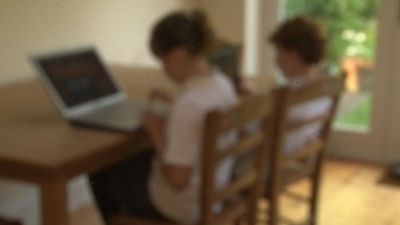Children as young as 12 went missing overnight from care homes last year

Children as young as 12 went missing overnight from their Jersey care homes in 2020, with one child going missing 47 times. The data forms part of the findings by the Jersey Care Commission, which was tasked with the inspection of registered care homes for children in the island last year. One care home, alone, reported 143 incidents in 2020. Incidents could include missing from care episodes, arrests, hospital attendance related to substance misuse, assault allegations and self-harm, and require notification to the Commission within two working days. The majority of the reports related to young people missing from care at night. The report found the frequency of missing from care episodes was most prevalent in four of the homes, and several of the homes were found to be accommodating at least two children who went missing frequently.
It also found that whilst there was some evidence of staff maintaining contact with young people when they went missing, there were instances in which there was no clear plan for how to secure the safe return of the child. It also found that staffing arrangements during the pandemic year had impacted on their ability to respond to these episodes. In particular there was an issue with availability of staff to collect them at night.
The report did, however, note there were instances also of the Commission receiving detailed accounts of staff searching for, locating and supporting a young person to return home, which they described as 'good practice.' The report also highlighted concerns around the independent person tasked with undertaking monthly visits and reporting back. Whilst it acknowledged the inevitable implications of Covid-19 on the person's ability to visit in person, as they were based in the UK, the interim reporting of electronic and telephone contact with the homes was criticised for lack of detail, in particular in relation to the incidents of children going missing from care.
The Commission noted particular concern that the independent person report made no reference at all to the repeated incidents of a 12-year old child going missing overnight from one of the homes, and being arrested. Mark Rogers, Head of Children, Young People Education and Skills (CYPES) in his response to the Commission's findings acknowledged that the frequency of children going missing from care needed to reduce. He also said the high frequency, in part, was down to the fact the police and the Care Commission would routinely be informed of all missing episodes, 'even when a child is absent without permission but where their whereabouts is known.' As a result, the government's Missing from Care Guidance was amended in March 2021 to make a clearer distinction between incidents of children being missing (where their whereabouts are unknown), and where there is an unauthorised absence (i.e. they stay out later than agreed). The latter, according to Mr Rogers 'is within the range of normal teenage behaviour and does not now come within the definition of 'missing' for the purpose of the Missing from Care Procedure.' Protocols with partner agencies have been strengthened, and a dedicated Missing from Care Co-Ordinator is also being appointed to support both residential staff and foster carers. The Government also acknowledged the current arrangements in relation to the independent person needed strengthening, with an intention to appoint someone new to the role. The independent regulation and inspection of residential care homes for children was a key recommendation of the Independent Jersey Care Inquiry, and registration became a legal requirement in 2019. There are seven registered care homes for children and young people , four of them accommodating only two or three young people. Amongst them two short break facilities, as well as one secure children's home, where children would usually be placed as a result of a court decision.